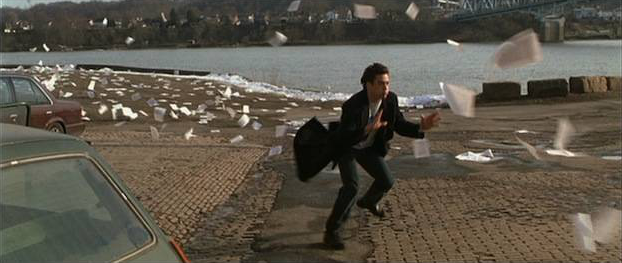A draft
By Ben Ladouceur
For years my partner and I lived in a condo, one of the four sides of which was flanked by windows, only one. The world was out there and we were in here, boxed, safe, separate, tucked away in the proscenium. Though the windows opened, air moved through that space with difficulty; why would air waste its time entering, when the only place to go from there was back the way it came? Now we live in a townhouse, two sides of which are windowed and all ours. By opening the front and back windows, we give the air points of both entry and exit. The air takes us up on the offer, producing a draft. At the condo I felt like an astronaut, looking down on civilization and intaking forced air. The townhouse is different. “I feel like I’m outdoors,” I told my partner sometime on our first week here, a ridiculous statement – there were walls all around me. But the air was soggy and heavy, just as it was outside, with thanks to the draft that came in.
When I think of drafts, I think of a book launch I attended in a windowless basement pub during the summer. Gillian Sze read sections of her latest book, one of which was still a draft, included in the book despite its incompleteness. She had to talk her editor into it. She wanted those poems in particular to keep that iffy, unrigid quality that goes away when we edit things. I found the drafty poems enjoyable and also a little cliché. They reminded me of some of the Instapoetry I have come across in my feeds – brief, shareable, relatable, and possibly just shy of true insightfulness. At Arc Poetry Magazine editorial meetings, we often deem a weak poem “too drafty,” as if there are holes in the poem, as if it is letting the outside air in.
I recently discussed the Instapoetry boom with a high school teacher, in a stuffy classroom whose windows could not open. I was charged, that day, with the task of getting twenty teenagers to write poems about anything. It was difficult even just to get them to look away from the phones, tablets and laptops they all had at hand. To understand the appeal of Instapoetry, the high school teacher told me, think of what young people bask in these days. Every day they scroll through memes – those tokens of ironic commentary, those sigils of life at a remove. Comments about the world, from the impossible position of a person who is above it. Irony is the lingua franca of the digital native; you are not expected to be serious about anything you say. In such an atmosphere, if you want to be sincere, you almost need an excuse. This is where draftiness and amateurism come in, and how they achieve their preciousness.
For those who do not employ filters, digital communication just accelerates the idiocy. But most of us take advantage of the delay that digital communication permits, polishing everything we post. Even the good-night texts you send your crush can go through many drafts before that perfect level of nonchalance is reached. If every aspect of intimacy and communication can be subjected to the editing process, then the most prized form of communication is the draft that isn’t final. Unimpressive, concise, cliched – the draft becomes a rare and beautiful thing. They contain less of the stench of the person doing the writing. They come to us soggy and heavy, bringing with them a bit of the world beyond.
Your CanLit News
Subscribe to Open Book’s newsletter to get local book events, literary content, writing tips, and more in your inbox
The views expressed by Open Book columnists are those held by the authors and do not necessarily reflect the views of Open Book.
Ben Ladouceur is a writer living in Ottawa. His first collection of poems, Otter (Coach House Books), was selected as a best book of 2015 by the National Post, nominated for a 2016 Lambda Literary Award, and awarded the 2016 Gerald Lampert Memorial Award for best debut poetry collection in Canada. Ben is the prose editor for Arc Poetry Magazine.


